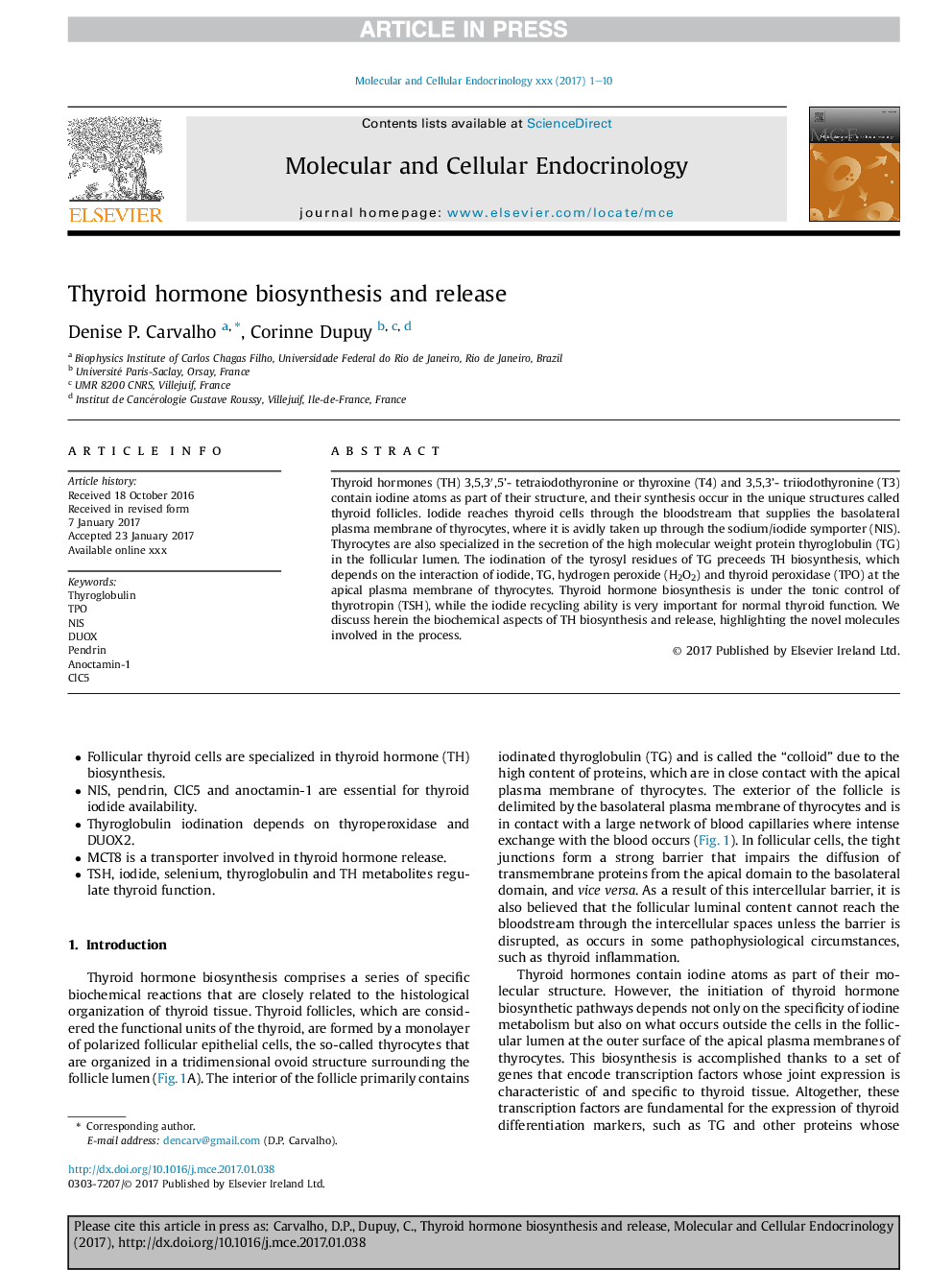| Article ID | Journal | Published Year | Pages | File Type |
|---|---|---|---|---|
| 8476640 | Molecular and Cellular Endocrinology | 2017 | 10 Pages |
Abstract
Thyroid hormones (TH) 3,5,3â²,5'- tetraiodothyronine or thyroxine (T4) and 3,5,3'- triiodothyronine (T3) contain iodine atoms as part of their structure, and their synthesis occur in the unique structures called thyroid follicles. Iodide reaches thyroid cells through the bloodstream that supplies the basolateral plasma membrane of thyrocytes, where it is avidly taken up through the sodium/iodide symporter (NIS). Thyrocytes are also specialized in the secretion of the high molecular weight protein thyroglobulin (TG) in the follicular lumen. The iodination of the tyrosyl residues of TG preceeds TH biosynthesis, which depends on the interaction of iodide, TG, hydrogen peroxide (H2O2) and thyroid peroxidase (TPO) at the apical plasma membrane of thyrocytes. Thyroid hormone biosynthesis is under the tonic control of thyrotropin (TSH), while the iodide recycling ability is very important for normal thyroid function. We discuss herein the biochemical aspects of TH biosynthesis and release, highlighting the novel molecules involved in the process.
Related Topics
Life Sciences
Biochemistry, Genetics and Molecular Biology
Cell Biology
Authors
Denise P. Carvalho, Corinne Dupuy,
